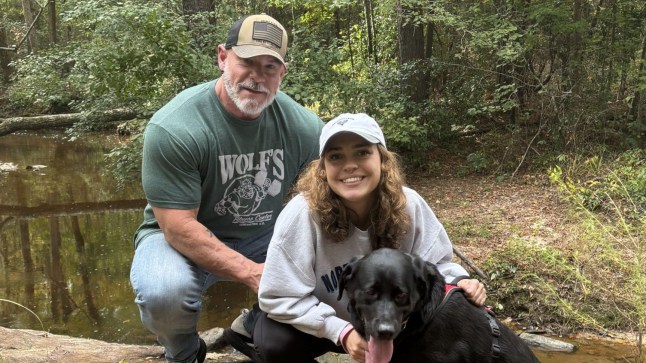25 Nov, 2025 | Admin | No Comments
Cat Deeley’s £26 gold metallic Marks & Spencer mini dress is just so perfect for party season
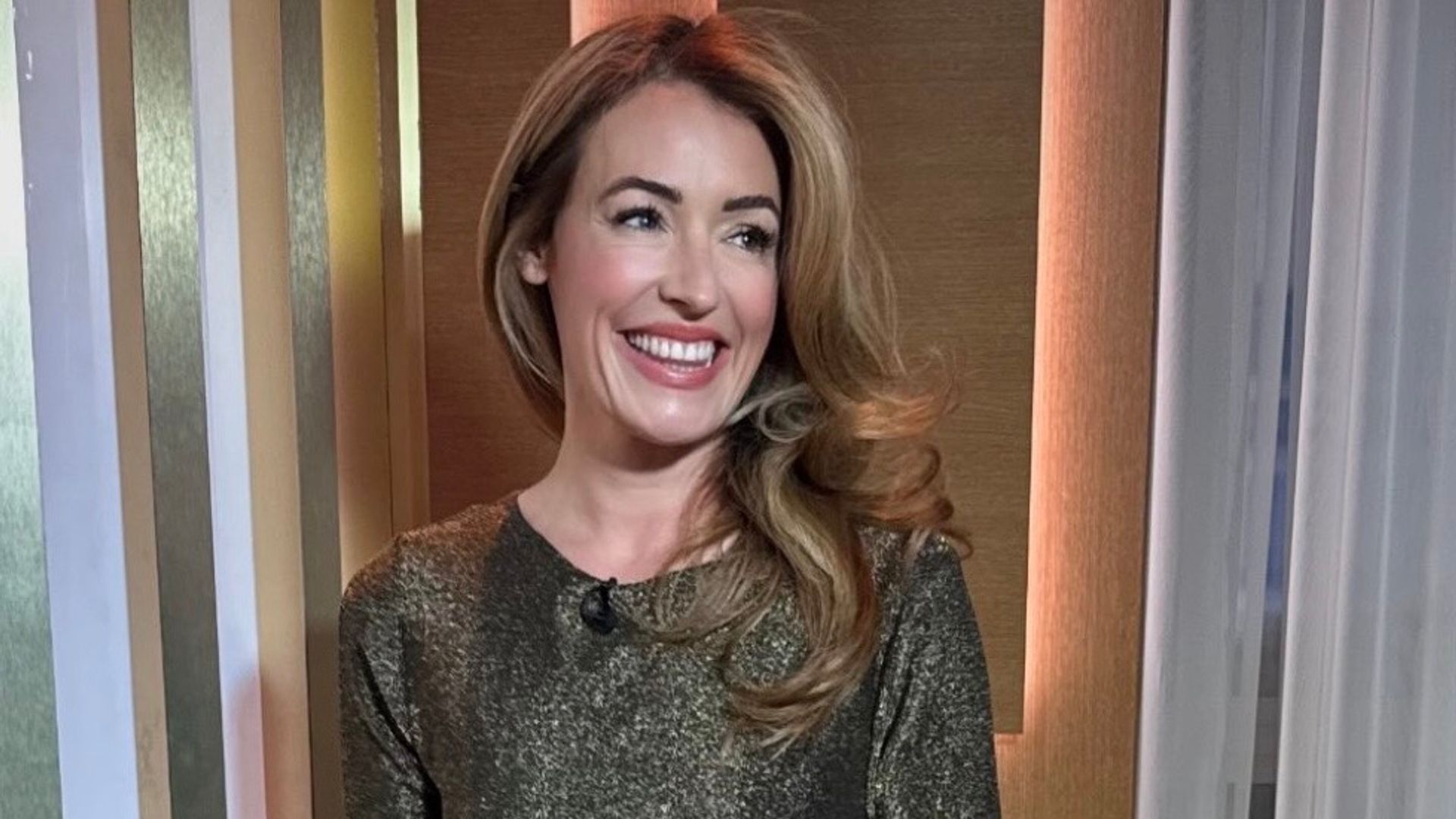
Cat Deeley opted for a gold mini dress from Marks & Spencer for Tuesday’s This Morning, and she teamed it with a pair of black Anine Bing cowboy boots and thick black tights. Shop the look.
25 Nov, 2025 | Admin | No Comments
Upgrade your living room with a chic new sofa from Sofa Club (and get up to 50% off!)
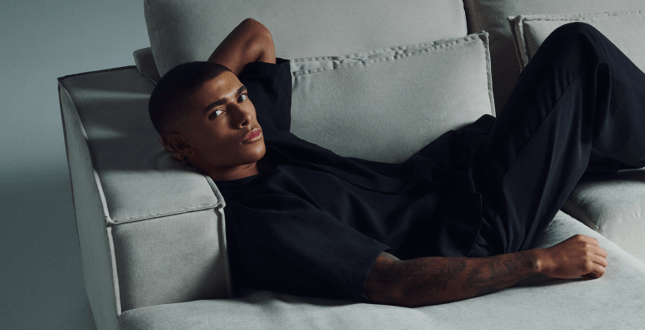
Metro journalists select and curate the products that feature on our site. If you make a purchase via links on this page we will earn commission – learn more
If you’ve been thinking about upgrading your living room in time for the festive season, now might be your moment because Sofa Club has just launched its biggest Black Friday sale ever, and the discounts are seriously impressive.
The brand, known for its chic designs and surprisingly affordable prices, Sofa Club has kicked off the 2025 event with huge savings across its most sought-after collections.
From cloud-soft cosy corner sofas to sleek Scandi styles, these standout pieces are already causing a stir.
First up is the Nobu in Black Clouds & Soft Cloud, the plush, deep-seated sofa that’s become something of a cult favourite among interiors lovers.
With its soft chenille finish and modern, sink-in comfort, it’s now 20% off, dropping from £1,599 to £1,279 – not a bad saving for a sofa that looks straight out of a designer showroom.

Sofa Club Nobu in Black Clouds & Soft Cloud
Featuring incredibly soft chenille upholstery and a customisable modular design, the Sofa Club Nobu in Black Clouds & Soft Cloud is suitable for every space. Its contemporary design has deep seats for ultimate comfort and the sharp lines keep the sofa looking clean and minimalist.
For those who prefer a lighter, calmer aesthetic for their living room, The Dreamer range in Vanilla Latte is also included in the sale at 15% off.
With its linen-look fabric and warm neutral tone, it’s the sort of sofa that makes any room feel instantly calmer and more expensive.
Those with bolder tastes aren’t left out either. The Kate in Stormfront, a rich chenille modular style, is now £1,359 down from £1,599 and the kind of statement piece you’d expect to see in a celebrity house tour – and now it comes with a rather welcome discount.
One of the biggest drops in the sale comes from the ever-popular Oslo Luxe Chenille range. Available in Pale Linen or Deep Charcoal, every configuration (including footstools) has been slashed by a massive 50%, taking prices from £1,599 to £799. If Scandi simplicity is your thing, this is the deal to watch.
The Sofa Club Black Friday event is officially live now, with savings of up to 50% across selected collections.
But with deals at this level, anyone hoping to refresh their space before Christmas might want to get clicking as these deals won’t be around forever.
Follow Metro across our social channels, on Facebook, Twitter and Instagram
Share your views in the comments below
25 Nov, 2025 | Admin | No Comments
Zara Tindall debuts first party season look of 2025 – and it has cut-outs

King Charles’ niece Zara Tindall debuted her first party season look of 2025 as she was joined by her husband, Mike Tindall, at The Beauty Awards 2025 at Honourable Artillery Company in London.
25 Nov, 2025 | Admin | No Comments
Princess Charlene’s major change hinting at ‘defining chapter’ ahead with 2 kids

Princess Charlene of Monaco’s major style change hinting at ‘defining chapter’ ahead with 2 kids, Prince Jacques and Princess Gabriella.
25 Nov, 2025 | Admin | No Comments
‘I’m only single due to my extraordinary height – men refuse to be seen with me’

A woman has shared how she believes the only reason she is single is because of her height. Even though she gets so much attention online, many men only see her as a ‘fantasy’
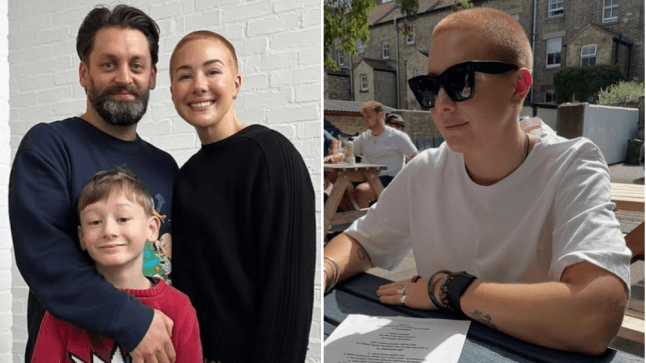
It was a humid June evening in 2024 as Ruby Jones, 33, climbed into bed.
Her husband, Rob, 37, was out playing football — as he did three times a week — while their then 8-year-old son, Albert, was already asleep.
After a busy Monday, packed with work and school, the mum-of-one was getting an early night.
‘We’d spent the weekend getting a few bits sorted for our family holiday to the USA,’ Ruby tells Metro.
‘It was very hot, and I put my eye mask on and earplugs in, and fell asleep.’
But that night, Ruby woke up to a loud thump. When she turned the light on, she saw her husband lying on the floor, his eyes wide open.
‘His chest wasn’t moving up and down, and I realised he wasn’t breathing,’ says Ruby. ‘That night changed everything.’
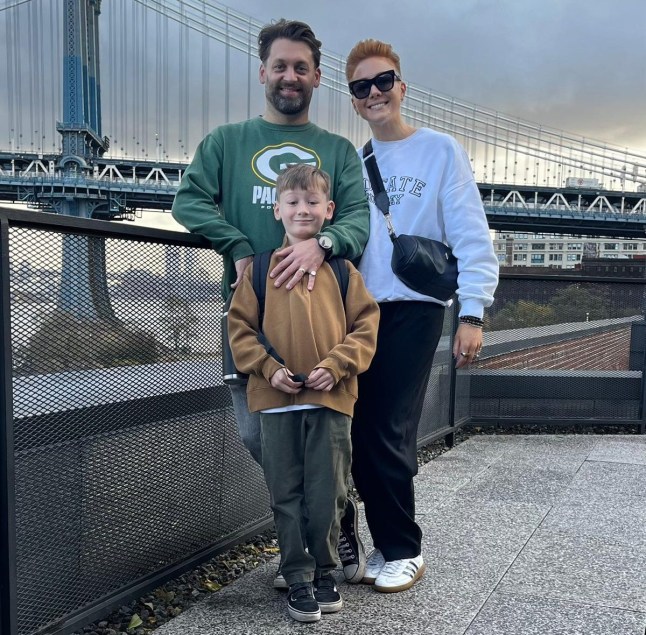
‘It was the darkest moment of my life’
‘I basically moved in with Rob after our first date,’ laughs Ruby, from Nottingham, recalling the moment the pair met on Match, back in 2012.
‘I was still at university,’ she remembers. ‘But I’ve always been a bit more mature, and when you know you know.’
Just two years later, they were married, with baby Albert arriving in 2015. ‘I’d always wanted to have children,’ says Ruby. ‘He was premature so after his birth, we raised a lot of money for charity.
‘Rob did the Great North Run, as well as a sponsored walk from Nottingham to Sheffield.’
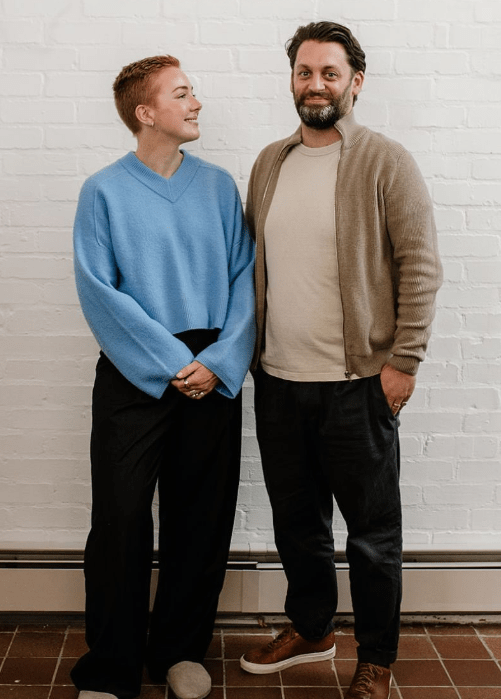
Active Rob was a non-smoker, and didn’t drink alcohol — his health wasn’t a cause for concern. So that night in June, Ruby’s first thought was that her husband had tripped over.
‘I thought maybe he’d got back late from football, and had lost his footing in the dark,’ she says. ‘Then I wondered if he was having some kind of seizure, but when I realised his chest wasn’t moving up and down, I knew I was going to have to do CPR.’
In a twist of fate, Ruby had done a CPR training course at work just a month earlier. ‘I ran to the next room to grab my phone, called 999, and started chest compressions,’ she says.
As Ruby frantically pushed down on her husband’s chest, tears streaming down her face, she thought of her son in the next room.
‘I prayed that he wouldn’t wake up,’ says Ruby. ‘All I could think was that Albert was too young to see his dad like this. That the image of his dad on the floor would stay with him forever.
‘I was sobbing. It was the darkest, most terrifying moment of my life.’
For 18 long minutes, Ruby kept going. ‘It felt like forever,’ she says. ‘It was exhausting, but obviously I was never going to stop. I needed him to live. What else was I going to do?’
Finally, after almost 20 minutes, the paramedics arrived. ‘There were three ambulances outside and suddenly so many people in the bedroom,’ says Ruby.
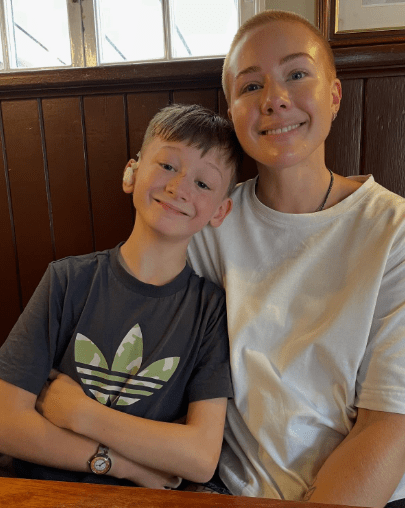
Reports from the first paramedics on the scene detailed Rob as having no pulse. ‘A defibrillator brought him back to life,’ says Ruby. ‘He died for 18 minutes.’
Rob was intubated and taken to hospital, with Ruby told to follow behind.
‘I remember getting changed out of my pjs, and giving myself a few minutes to cry. Then I knew I had to get back into mum mode.
‘I woke Albert up and told him that Daddy wasn’t very well. On the drive to the hospital I couldn’t look at him in the eye, I didn’t want him to see how upset I was.’
‘Hi babe, apparently I’ve had a cardiac arrest’
Arriving at A&E, nurses looked after Albert, while Ruby went to visit her husband.
‘The sight of Rob at hospital made me feel sick,’ says Ruby. ‘They were trying to get a line into him, and he had tape over his eyes. The look on the doctors face made it pretty obvious that this wasn’t good.’
Rob was placed into an induced coma in intensive care. ‘All I could do was wait,’ says Ruby.
That afternoon, along with Rob’s family, doctors delivered some shocking news. ‘They bundled us all into a little room, and said they’d tried to bring him round, but he’d had a fit.
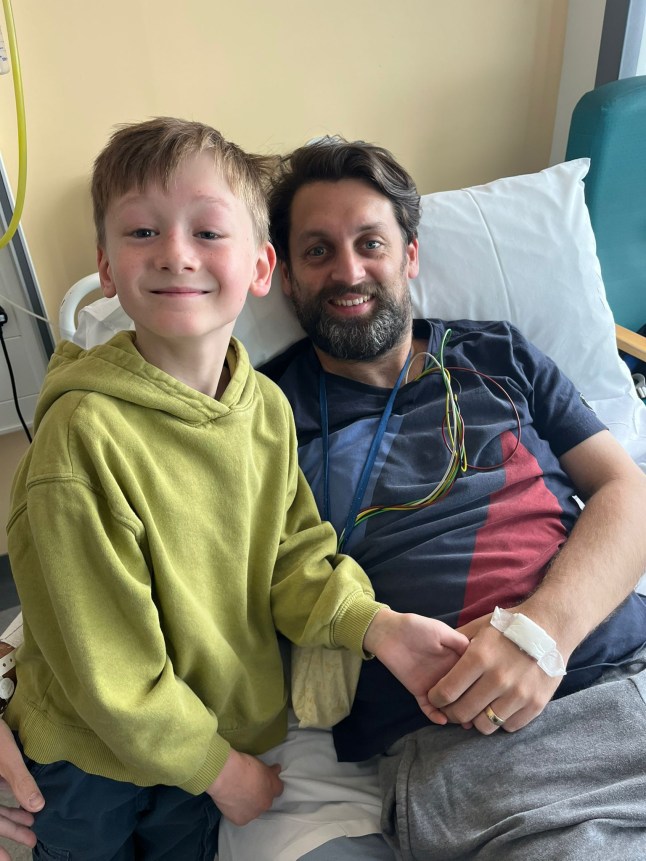
‘Then they said: “We’re quite worried there may not be any brain activity.” I just remember thinking, “What am I going to do?”‘
Ruby says that the days that followed were surreal. ‘I just tried to cope. Sometimes I’d be crying, other times I’d make jokes like “If he wanted a day off, he could have just asked.”
‘I’d text him every day, knowing I wouldn’t get a reply. I told him how much I loved him, how brilliant I thought he was and how I didn’t want to be without him.’
It was around four days after his cardiac arrest that Rob was finally brought out of his coma.
‘I got a call saying he wanted to talk to me,’ says Ruby. ‘They put him on the phone and he said: “Hi babe, apparently I’ve had a cardiac arrest.”‘
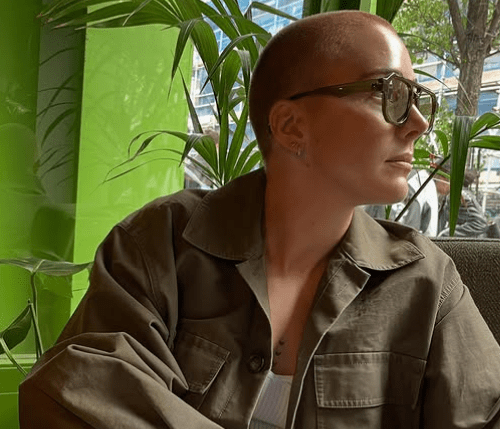
From that day on, Rob embarked on a journey to recovery. Thankfully, scans showed there’d been no permanent brain damage.
‘His memory was terrible,’ says Ruby. ‘I was repeating myself all the time, and I’d buy him sudoku to try and help.’
Finally, in July 2024, Rob was discharged from hospital. He came home with a small defibrillator implanted into his chest — it means that if Rob’s heart stops again, it will send electrical pulses to make it beat normally again.
No warning, no symptoms
‘We hoped what happened would just be a freak accident,’ says Ruby. ‘But that December, Rob had been playing football, and woke up the next morning with a tight chest.
‘He later got a call from hospital, confirming that his heart had stopped in the night — and the device in his chest had provided a shock to his heart.’
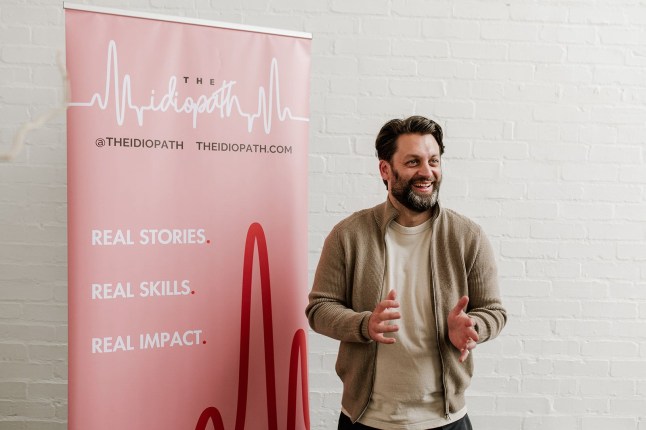
While Rob can no longer do any high-intensity cardio, his brain function is completely normal.
Now, over a year on from his cardiac arrest, Ruby and Rob are committed to raising awareness of the importance of knowing how to perform CPR.
The pair run The Idiopath, which delivers motivational talks and CPR training. The name idiopath, which means ‘arising spontaneously or without a known cause,’ is used because Rob’s cardiac arrest had no warning, symptoms, or obvious cause.
Ruby says: ‘It hasn’t been an easy journey. I have PTSD after that night, and I’ve had counselling.
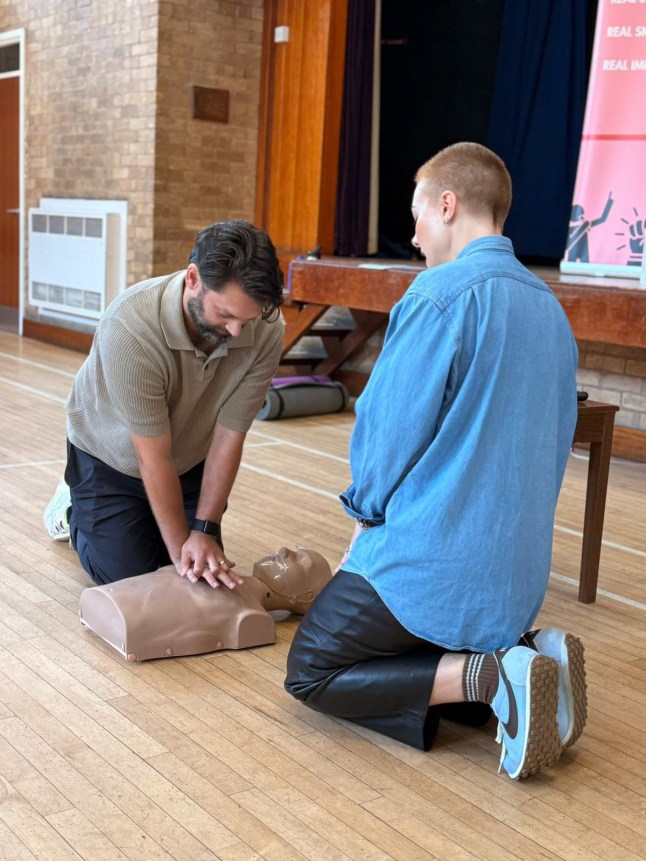
‘I went through a phase where hearing someone shout in the house was quite scary for me, and I’d often re-live the moment in my head.
‘Now, we keep moving forward. I’m so grateful that Rob made it through that night. Now we’re on a mission to raise awareness, and save lives.’
Metro is proud to be partnering with the The British Heart Foundation’s eighth annual Heart Hero Awards, hosted on Tuesday, November 25. The ceremony will shine a spotlight on the inspiring stories of bravery, innovation and dedication that power BHF’s lifesaving research. From young fundraisers and CPR lifesavers to pioneering researchers and community champions, the Heart Hero Awards honour those who embody the spirit of hope and resilience. To donate to the British Heart Foundation this festive season and give a gift that keeps on living, visit their website.
Out-of-hospital cardiac arrest
Cardiac arrest is a critical medical emergency, where the heart stops pumping blood around the body. Unless treated immediately, it leads to death within minutes.
• There are more than 40,000 out-of-hospital cardiac arrests (OHCAs) in the UK each year.
• The estimated survival rate in the UK is less than one in ten.
• Every minute without cardiopulmonary resuscitation (CPR) and defibrillation reduces the chance of survival by up to ten per cent.
• Early CPR and defibrillation can more than double the chances of survival.
• It’s estimated that public-access defibrillators (PADs) are used in less than ten per cent of OHCAs in the UK.
RevivR is the British Heart Foundation’s free, interactive, online CPR training course. In just 15 minutes, you can learn how to save a life and receive your very own CPR certificate. It couldn’t be simpler – you just need your mobile phone or tablet and a cushion to practice on.
Do you have a story to share?
Get in touch by emailing MetroLifestyleTeam@Metro.co.uk.

Thanks to my mum working in medicine, I’ve always been on top of my health.
As a result, I’ve long made sure to have a full ‘MOT’ check-up every summer – and thankfully, for most of my adult life, I’ve been given a clean bill of health.
But little did I know that, in 2013, my GP had missed the abnormal results of my PSA blood test – which helps detect prostate cancer.
None the wiser, the following summer, I had another MOT and the results this time concerned my GP. I then went on to have a rectal examination, but doctors thought my PSA levels were raised due to the type of activities I did, such as cycling.
I was told that this type of physical activity may have irritated the prostate, so nothing was done.
That was until 2015, when I twisted my ankle at the gym and couldn’t work. During that time, I decided to have my MOT early – this time, with a different GP.
Six weeks later I was told that I had prostate cancer.
I was 49, and I didn’t know what the future held or how it would impact things like incontinence, or my sex life.
Quote Quote
Now, David Cameron has revealed that he, too, was diagnosed with prostate cancer three years ago after his wife encouraged him to get a PSA test. Unlike mine, his ‘worryingly high’ results were picked up immediately as an alarming red flag.
And, like Cameron, I’m committed to raising awareness of the vital need for early diagnosis when it comes to prostate cancer. Because the earlier you find prostate cancer, the easier it is to treat.
Initially, when I first heard the news of my diagnosis, I was bereft. I went into a corner in the surgery and cried, it was such a blow. My dad had died of the disease and my uncle had had it too.
I was only 49, and I didn’t know what the future held or how it would impact things like incontinence, or my sex life.
At the same time, I felt hopeful and optimistic that I would overcome the cancer. Everyone in my family was also very supportive and rallied around me when they heard the news.
In a way, I feel lucky that my cancer was caught so early, even though I had no symptoms, which meant I could still have treatment to cure it completely.
I decided to have surgery to remove the entire prostate and I had issues with leaking afterwards, as I feared.
Luckily, my amazing after-care team explained the exercises that I needed to do to help the muscles remember how to do their job again. It took me almost two years to get to a place of confidence, but I’m fine now and doing well.
As predicted, I also had some erectile dysfunction after my surgery, which made me feel frustrated, even angry at times, and envious of friends who would tell me of their most recent pleasures.
I felt cheated and sometimes gave up hope of finding that happy place again.
I was initially prescribed Viagra, but decided not to use it as I wanted my body to learn how to do things on its own. It’s an approach that took a while to help, but now all that frustration is behind me.
Since the moment I was diagnosed, my whole outlook on life has changed.
I started looking at everyday objects differently and wondered if I would ever see them again.
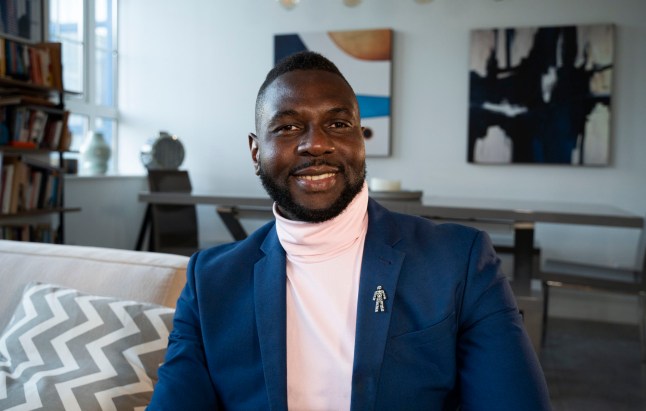
I rarely wear a coat in the winter now because I want to feel the cold air on my skin, reminding me that I’m still here.
I don’t take anything for granted any more, and for me it’s about grabbing life with both hands and spending as much time as possible with the people I love.
Currently, there’s no trace of the cancer, and I’m living with very little impact from the surgery. My most recent PSA reading was 0.1 and I was recently told that the hospital will refer me back to my GP for regular monitoring, which is good news.
The reality is, I’m one of the 1 in 4 Black men who will be diagnosed with prostate cancer.
Prostate cancer mainly affects men when they’re over 50, but Black men (or men who have a history of prostate cancer in the family like I did) need to watch out from the age of 45.
I never had any symptoms before I was diagnosed after my ankle injury, so the impact of prostate cancer isn’t usually felt and doesn’t usually start affecting you until it has already spread and is incurable.
That’s why being diagnosed early can be lifesaving for men.
I now know how crucial it is to understand your risks of prostate cancer. It’s why I’ve teamed up with Prostate Cancer UK to help to inform and educate – especially amongst other Black men. I use every opportunity that I get, and wear the Man of Men badge, which often sparks a conversation.
I supported the charity once again for their 2023 campaign: ‘What on Earth is a prostate!?’
For this campaign, the charity conducted a survey on a number of widespread myths and misconceptions about prostate cancer and I was shocked to discover that, according to the survey, 78% of Black men don’t know that ethnicity influences the risk of prostate cancer.
The reality is, Black men are at double the risk of getting the disease compared to other men.
More Trending
It also turns out that lots of men feel like they would wait for symptoms before they speak to their GP – apparently, 59% of men in the UK say that they don’t want to bother their GP unless they are in pain or have symptoms (of Black men surveyed, 52% said the same).
Others say they’re put off by the thought of a rectal exam. But the good news is you do not need that test to check for prostate cancer anymore. The best first test is a blood test and then if there are any signs of prostate cancer you are referred for an MRI scan.
We can’t afford for men to bury their head in the sand, it’s costing too many lives. That’s why I tell men to take Prostate Cancer UK’s 30 second risk checker, to quickly understand if you are at risk and what you can choose to do about it.
So don’t put it off, it could save your life. It saved mine.
Catching prostate cancer early saves lives. Check your risk today at prostatecanceruk.org/riskcheck
Do you have a story you’d like to share? Get in touch by emailing jess.austin@metro.co.uk.
Share your views in the comments below.
24 Nov, 2025 | Admin | No Comments
Photos reveal ‘horrendous’ reality for girl who sweats three litres a day


When Darcie Hamilton was 10, she noticed she was sweating more than anyone else at her primary school.
But this wasn’t an isolated incident, as she grew older her sweating became a serious problem, forcing her to take drastic measures.
This included bringing three changes of clothes to school as well as taking up to five showers every day.
It wasn’t until Darcie was 16 that doctors finally diagnosed her with ‘one of the worst cases’ of hyperhidrosis they’d seen – a medical condition in which a person sweats excessively.
And shocking photos have revealed the side effects and ordeal she went through when her condition was at its worst at school.
‘School was absolutely horrendous for me,’ Darcie, who lives near Ayr, Scotland, recalls. ‘The condition was one of the things that I got severely bullied for.
‘I had to leave school at 14 because that’s how bad the bullying was from it. They would say I was dirty.’
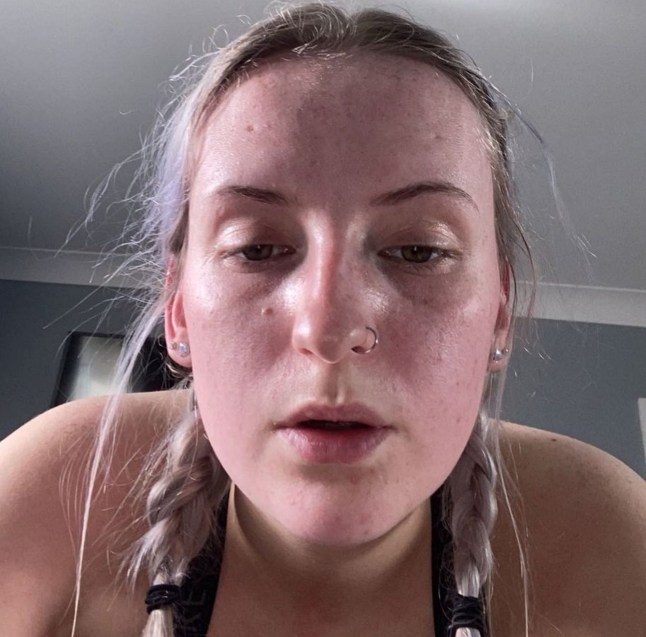
It’s something that ‘definitely affected’ her, and no matter what she did, the side effects only got worse.
‘The sweat would literally be from the top of my armpit all the way down to the bottom of my waist,’ Darcie, now 22, says.
‘I was going to the school in the winter without a jacket just so I wouldn’t sweat. The older I got, the more visible it became. I would start chafing. It would cause rashes, blisters, really bad sores.
‘It overtook my life, I was in my bed all day every day. I didn’t want to leave the house or make friends. I was embarrassed.’
Darcie says she was sweating three litres of fluid every day, and as a result began downing five litres of water to curb her dehydration.
‘I’d wake up soaking in sweat no matter how cold I was,’ Darcie adds. ‘I’d wash my hair then hours later it would be soaking in sweat and I’d need to wash it again.
‘Sometimes I’d be showering maybe four or five times a day and bringing two or three changes of clothing as well. I had to bring changes of clothes to school. If I go out, even just for a walk, sometimes I have to change two or three times a day.’
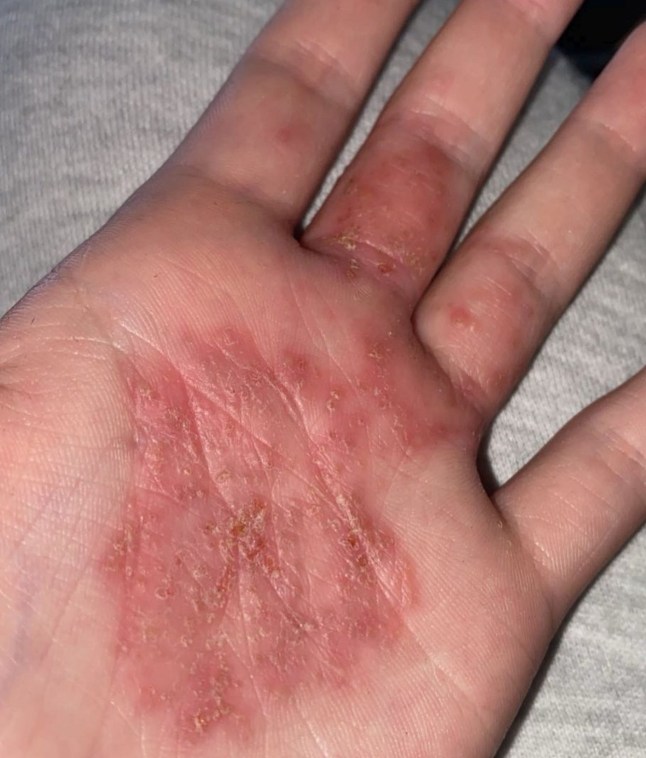
She’s binned thousands of pounds worth of clothes after only being able to wear an item twice, because her excessive sweat had ‘destroyed’ it.
‘It really affected my confidence,’ Darcie says. ‘The hyperhidrosis caused contact dermatitis because of the constant sweating.
‘The sores in my armpits and hands were excruciating, and I would get hundreds of tiny blisters on both hands.’
After getting her hyperhidrosis diagnosis in 2019, doctors told her it was ‘one of the worst cases’ they’d ever seen.
Initially, Darcie was given NHS-funded botulinum toxin (colloquially known as Botox) injections for her hyperhidrosis, but received a letter earlier this year to say the treatment was being withdrawn from University Hospital Ayr.
Excessive sweating (hyperhidrosis)
Excessive sweating can happen for no obvious reason, because of another condition you may have, or as a side effect of a medicine you’re taking.
To avoid making it worse, don’t do the following:
- Wear tight clothes or synthetic fabric like nylon
- Wear enclosed boots or sports shoes
- Drink alcohol or eat spicy food
If there’s no obvious cause for your sweating, and nothing seems to be helping, then you may be referred to a specialist (dermatologist).
They may recommend other treatments that you can try, such as:
- taking tablets that reduce sweating
- treating the areas with a weak electric current passed through water or on a wet pad (iontophoresis)
- having botox injections for sweating under the armpits (this may not be available on the NHS)
- surgery – for example, removal of the sweat glands
Source: NHS
The letter states the removal of treatment is due to a number of vascular consultant retirements and a national shortage of vascular consultants. This means the health board has consequently had to ‘prioritise acute and urgent care’ for remaining surgeons.
‘I was devastated when they cut the treatment,’ Darcie says. ‘I opened the letter and just balled my eyes out crying. I felt so defeated.
‘When I got my first Botox injection, it did last the full year and I had no symptoms – no blisters, no sweating. I felt great in myself.’
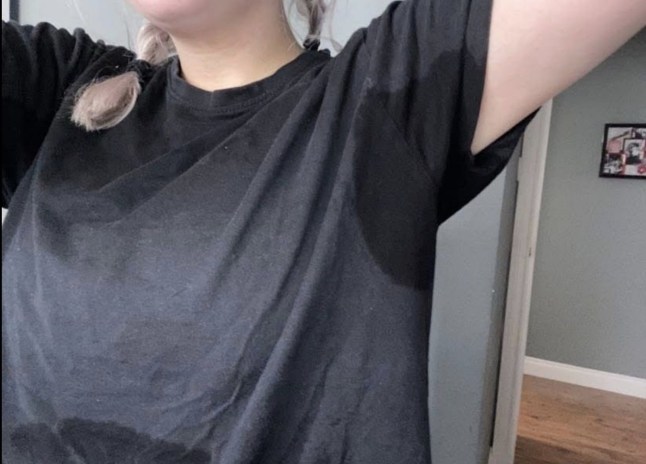
She now has to pay to have the injections privately and says she does still struggle with sweating, but not to the extent she did before.
‘Because the Botox is wearing off, you start feeling the dread again,’ she adds. ‘It’s something I think I’ll have to deal with for the rest of my life.’
The 22-year-old doesn’t believe hyperhidrosis is taken seriously as a real medical condition.
‘I think people see someone sweating and think they’re disgusting and don’t clean themselves,’ she explains. ‘But it’s a real medical condition and there’s real people living with it.’
Vicki Campbell, director of Acute Service at NHS Ayrshire & Arran, commented on the withdrawal of the injections, saying: ‘Vascular services in NHS Ayrshire & Arran are delivered as part of a network arrangement with NHS Lanarkshire and NHS Dumfries & Galloway.
‘Despite attempts to recruit, there are currently vacancies in the network’s consultant establishment which is representative of a national shortage of vascular surgeons.’
Vicki explains the National Referral Protocol – a framework for identifying and referring individuals to the appropriate services – was published in September 2025, and supersedes the Exceptional Referral Protocol.

The Exceptional Referral Protocol is a set of rules for procedures not routinely available through the NHS, because they are primarily for cosmetic reasons and do not treat an underlying disease. These referrals are only granted on a case-by-case basis if there is clear evidence that the patient will experience significant benefit.
‘The NRP sets out NHS Scotland-wide criteria for the treatment of a number of conditions,’ Vicki adds. ‘Under this guidance, Botulinum toxin for hyperhidrosis is not routinely provided by NHS Scotland.
‘As a result of the above, consultant time requires to be prioritised for the provision of acute and urgent vascular care.
‘We would like to take this opportunity to apologise to any patient that this may affect. Due to patient confidentiality, we are unable to comment on individual cases.’
Do you have a story to share?
Get in touch by emailing MetroLifestyleTeam@Metro.co.uk.



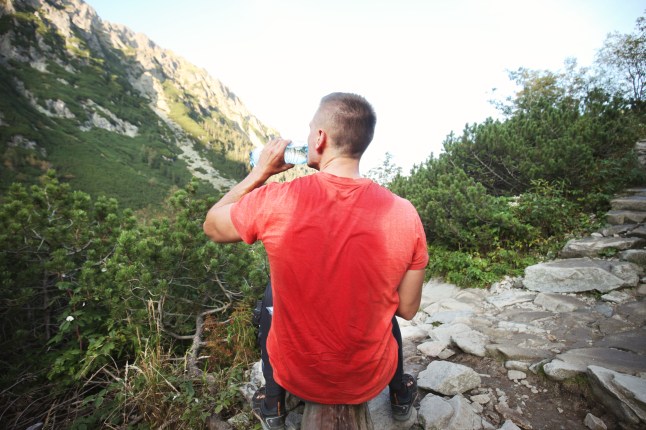

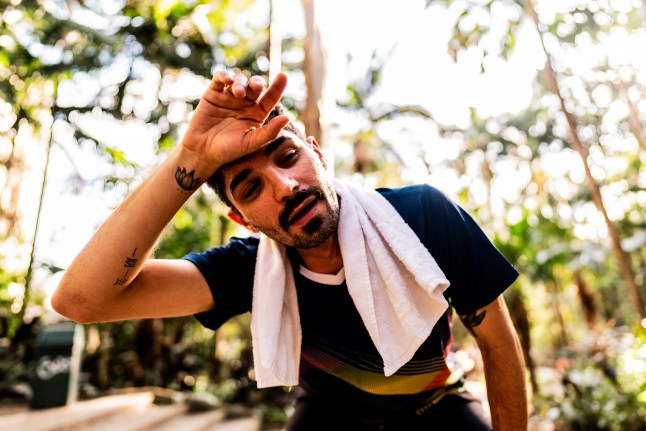
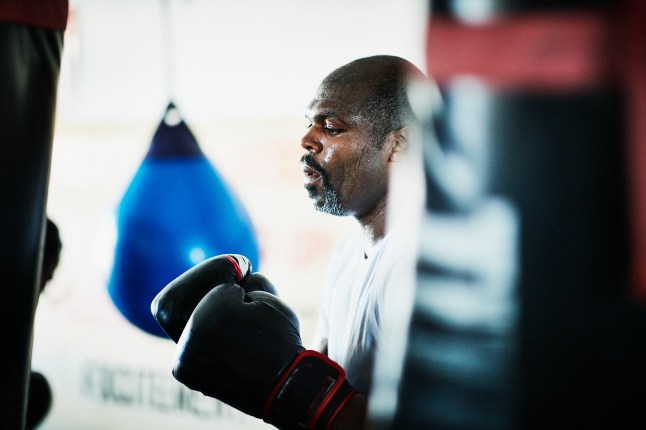
23 Nov, 2025 | Admin | No Comments
‘We were attacked and left blind – now we’re parents but people say it’s wrong’

After welcoming their first baby together, blind couple Hareem and Jonesti faced plenty of criticism over their suitability as parents. But they have since proved the doubters wrong, working out their own ‘different’ approach to parenting


